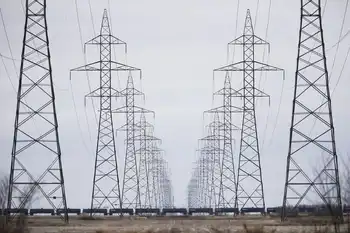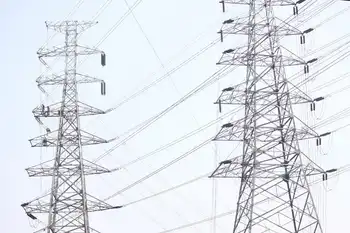Decision coming on Cape Cod wind farm
Interior Secretary Ken Salazar, after meeting with virtually all of the parties to the dispute, said that he intended to decide whether to approve the wind turbine project no later than April.
“What I want everyone to understand is that we will bring this process to a conclusion,” Mr. Salazar said at a news briefing. He said the drawn-out controversy and repeated challenges were “bad for everyone involved.”
The project, known as Cape Wind, is shaping up as a signal test of the Obama administrationÂ’s commitment to renewable energy projects on public lands and off the nationÂ’s shorelines. Cape Wind, first proposed in 2001, would be the countryÂ’s first major offshore wind energy project, although wind power developers in Delaware, New Jersey and Rhode Island hope to follow soon.
A coalition of state and local politicians, American Indian tribes, preservationists and Cape Cod business operators oppose the project, saying the 130 wind turbines rising 440 feet above the surface of Nantucket Sound would spoil the ocean view and disrupt submerged Indian burial grounds.
Mr. Salazar said he was trying to balance two of his most important missions at the Interior Department: to promote development of renewable energy to address global warming and to preserve the nationÂ’s public lands and historic heritage.
Although he gave no explicit clue to his intentions on Cape Wind at the briefing, he did say that pushing renewable energy was one of President ObamaÂ’s top priorities. And his sense of urgency on reaching a decision on Cape Wind appeared to be a sign that he was leaning toward approving it.
Mr. Obama has not publicly taken sides in the dispute. The late Senator Edward M. Kennedy, whose family compound in Hyannis Port looks out on the proposed wind farm site, was one of the projectÂ’s most outspoken opponents.
In a meeting, the coalition opposing the wind farm asked Mr. Salazar to consider relocating the project to a less intrusive part of the sound. State officials who support the project, including Gov. Deval Patrick, rejected the proposed compromise, saying the alternate site has already been considered.
Mr. Salazar appeared to support the state officialsÂ’ position, saying that relocating the project would require a new multiyear permitting process. He said that some of the objections of the tribes and other opponents could be addressed within the existing application.
Opponents said Mr. Salazar could approve the alternate site because it had already been considered in federal permits. Audra Parker, president of the Alliance to Protect Nantucket Sound, the principal opposition group, said that the alternate site would produce as much clean energy and have far less impact on tribal and historic sites than the current proposed site.
The project appeared to suffer a major setback when the National Park Service declared that Nantucket Sound was eligible for listing on the National Register of Historic Places. The decision came in response to a petition from two Massachusetts Indian tribes who said the soaring turbines would thwart their spiritual ritual of greeting the sunrise.
But Mr. Salazar can still approve the project after consulting with the Advisory Council on Historic Preservation, an independent body.
A coalition of New England environmental groups urged Mr. Salazar to give a green light to Cape Wind. “This project will show the country and the world that we can meet the twin objectives of delivering clean, renewable energy while preserving the nation’s historical, cultural and natural resources,” the groups said in a statement.
Related News

Brazil government considers emergency Coronavirus loans for power sector
SAO PAULO - Brazil’s government is considering an emergency loan package for energy distributors struggling with lower energy use and facing lost revenues because of the coronavirus outbreak, an industry group told Reuters.
Marcos Madureira, president of Brazilian energy distributors association Abradee, said the package being negotiated by companies and the government could involve loans from state development bank BNDES or a pool of banks, but that the value of the loans and other details was not yet settled.
Also, Brazil’s Mines and Energy Ministry is indefinitely postponing projects to auction off energy transmission and generation assets planned for this year because…





